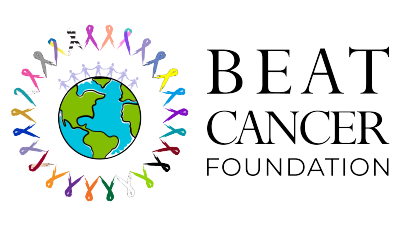
Understanding Breast Cancer

Clarifying Breast Cancers: A Comprehensive Guide
Understanding Breast Cancer
Breast cancer is a multifaceted disease that manifests in various forms, each with unique characteristics, prognosis, and treatment options. The type of breast cancer depends on the cells present in the biopsy and their responsiveness to different hormones. This article will explore three prevalent breast cancer types: Ductal Carcinoma In Situ (DCIS), Invasive Ductal Carcinoma (IDC), and Invasive Lobular Carcinoma (ILC).
Ductal Carcinoma In Situ (DCIS)
DCIS is an early-stage breast cancer that hasn't spread beyond its origin, making it less aggressive. DCIS is categorized into low, intermediate, or high grades, with some women never progressing beyond their initial grade. In some cases, a "watch and wait" approach may be recommended instead of aggressive treatment.
Key Considerations for DCIS:
• Understand the importance of detoxification pathways and whole-body care, supporting liver and kidney function in toxin elimination.
• Incorporate nutritional components found in a Breast Cancer Prevention Bundle, such as medicinal mushrooms, DIM, sulforaphane, and lignans.
Invasive Ductal Carcinoma (IDC)
IDC is the most prevalent form of breast cancer, accounting for nearly 75% of all cases. Originating in the milk ducts, it invades surrounding tissue by breaking through the ductal lining. Symptoms may include a lump, skin irritation, dimpling, or nipple discharge. IDC is classified from stage I (earliest) to stage IV (most advanced) using CT, MRI, and PET scans.
Key Considerations for IDC:
• Understand the importance of detoxification pathways and whole-body care, supporting liver and kidney function in toxin elimination.
• Regardless of whether cancer is ER+, PR+, or HER2+, consider natural hormone balance support using natural aromatase inhibitors such as DIM, Indole-3-Carbinol (I3C), Calcium D-Glucarate, Sulforaphane, and Chrysin.
• Seek a practitioner who identifies the cancer's cause, tests for cancer-balancing treatments, and supports immune function.
Invasive Lobular Carcinoma (ILC)
ILC, the second most common invasive breast cancer, begins in the breast's lobules and invades surrounding tissue. ILC may not form a lump, making early detection challenging. Some women may notice a thick or full area, a change in nipple position, or skin texture changes. Approximately two-thirds of ILC-diagnosed women are 55 years or older.
Key Considerations for ILC:
• Understand the importance of detoxification pathways and whole-body care, supporting liver and kidney function in toxin elimination.
• Regardless of whether cancer is ER+, PR+, or HER2+, consider natural hormone balance support using natural aromatase inhibitors such as DIM, Indole-3-Carbinol (I3C), Calcium D-Glucarate, Sulforaphane, and Chrysin.
Triple-Negative Breast Cancer (TNBC)
TNBC is an aggressive form of breast cancer lacking the three receptors typically targeted in treatment: estrogen receptors (ER), progesterone receptors (PR), and HER2/neu. TNBC accounts for approximately 10-20% of all breast cancers and often affects younger women and those with a BRCA1 gene mutation. Though the lack of receptors makes treatment more challenging, TNBC can respond well to chemotherapy and radiation therapy.
Key Considerations for Triple-Negative Breast Cancer:
• Understand the importance of detoxification pathways and whole-body care, supporting liver and kidney function in toxin elimination.
• Consider incorporating immune-boosting supplements and therapies such as high-dose Vitamin C and Beta-Glucans.
• Explore a ketogenic diet, caloric restriction, and fasting to specifically target cancer cells.
• As with any diagnosis, find a practitioner who identifies the cancer's cause, tests for cancer-balancing treatments, and supports immune function.
In conclusion, understanding the various types of breast cancer and their unique characteristics is crucial for developing an effective and personalized treatment plan. Regardless of the breast cancer type, consider integrating natural and holistic therapies alongside traditional treatments. Always consult with a healthcare professional and consider working with an integrative or functional medicine practitioner to create the optimal care plan for you.
“Knowing all your treatment options could be life-saving!”
Location
Sheridan, WyomingTogether, we can beat cancer
Thank you for your interest in the Beat Cancer Foundation. We are here to support you every step of the way in your cancer treatment journey. Please fill out the form below, and our team will be in touch with you shortly. Together, we can beat cancer. (307) 291-0991

